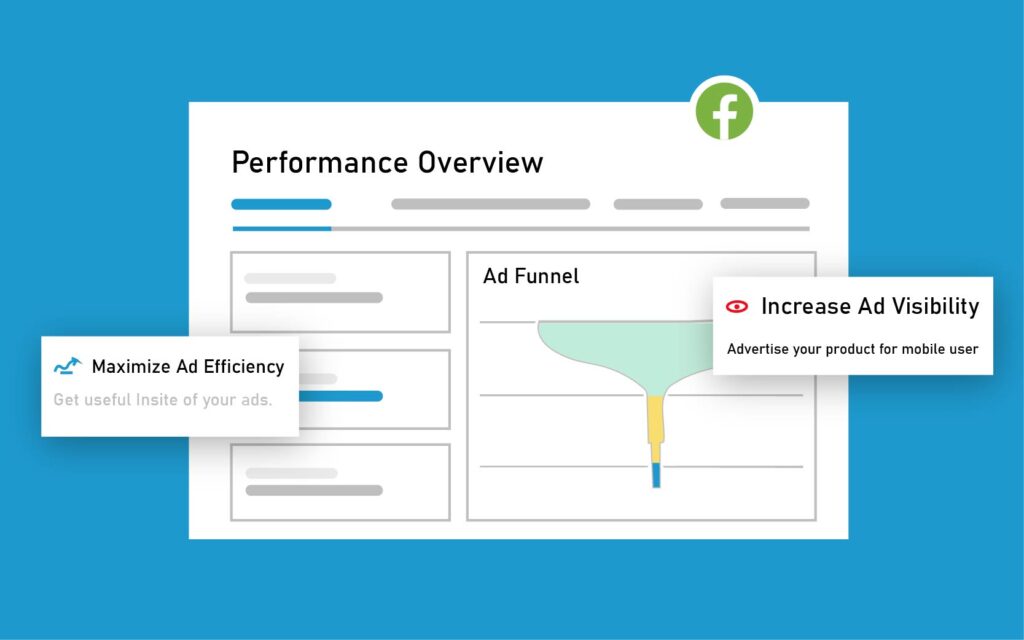
LinkedIn Client Hunting Course in Mohakhali
LinkedIn is more than just a platform for networking; it’s a powerful tool for finding

If you want my team to manage your good marketing for you, click here
Course participants will discover the ins and outs of effective Facebook marketing strategies that are crucial in today’s digital landscape. They will learn how to create engaging content, target the right audience, and utilize analytics for campaign optimization. This course offers a comprehensive exploration of various tools and techniques designed to enhance their marketing skills. With expert guidance, they will be equipped to boost their online presence and drive results for their businesses in New Market.

A variety of Facebook marketing strategies can be implemented to enhance engagement and reach potential customers. Below are some effective strategies:
Assume that he or she combines these strategies effectively for optimal results.
| Strategy | Description |
| Content Creation | Producing valuable content that resonates with the audience. |
| Audience Engagement | Encouraging interactions through comments, shares, and likes. |
| Targeted Ads | Utilizing Facebook’s ad targeting features to reach specific demographics. |
| Contests and Giveaways | Running promotional events to attract engagement and followers. |
| Collaborations with Influencers | Partnering with influential figures to expand reach. |
Types of organic marketing on Facebook focus on free methods to reach an audience. He or she can utilize engaging posts, create communities through groups, and interact regularly with followers. Additionally, posting valuable content that aligns with the target audience’s interests can lead to organic growth without incurring advertising costs.
Types of paid advertising on Facebook include various ad formats that target specific audiences. They can range from image and video ads to carousel ads, each designed to promote products and services effectively. By leveraging Facebook’s targeting capabilities, they can reach potential customers based on demographics, interests, and behaviors.
Another significant advantage of paid advertising is the ability to track performance metrics. By analyzing engagement rates, click-through rates, and conversion rates, he or she can make data-driven decisions to optimize campaigns and achieve better results over time. This allows for a more strategic approach to advertising on the platform, ensuring resources are allocated effectively for maximum impact.
There’s a recipe for success when it comes to Facebook marketing that businesses must follow to sustain their growth and engagement. Key elements include:
Knowing these factors can significantly improve the effectiveness of one’s Facebook marketing strategy.
On Facebook, effective audience targeting helps businesses reach the right people with their marketing messages. By utilizing demographic filters, interests, and behaviors, she ensures that promotional content resonates with the intended audience, leading to higher engagement and conversion rates.
If they focus on content optimization, businesses can enhance their visibility and engagement on Facebook. This involves using eye-catching visuals, crafting compelling headlines, and incorporating effective calls to action, ensuring content stands out in the crowded feeds.
Factors contributing to successful content optimization include using relevant keywords, analyzing peak engagement times, and adapting content formats to align with audience preferences. By constantly refreshing their approach and experimenting with different types of posts, they can better capture their audience’s attention and drive interactions.
While creating a successful Facebook campaign may seem daunting, following a structured approach can simplify the process. Marketers should focus on clearly defining objectives, identifying target audiences, and crafting engaging content. They can then follow these crucial steps to ensure their campaign reaches its fullest potential.
Steps to Set Up a Facebook Campaign
| Step | Description |
|---|---|
| Define Campaign Goals | Identify objectives such as brand awareness or lead generation. |
| Target Audience | Research and select demographics that align with the goals. |
| Create Content | Design visually captivating images/videos and informative text. |
| Set Budget | Determine daily or lifetime budget and select bidding strategy. |
| Launch Campaign | Execute the campaign and monitor initial performance. |
| Analyze Results | Assess data to refine targeting and content for future campaigns. |
Facebook serves as an crucial platform for marketers to create a Business Page that showcases their brand. This page functions as a professional profile where she can share updates, engage with customers, and promote products or services. By ensuring it is visually appealing and informative, she positions her business for greater visibility and connectivity with potential clients.
Now, marketers need to focus on launching and actively monitoring their ads for optimum effectiveness. After executing the campaign, they should track performance metrics such as click-through rates and conversion rates. Continuous observation helps in understanding what resonates with the audience, allowing them to make adjustments as necessary.
This ongoing analysis enables marketers to refine their strategies further, ensuring that the ads are not only reaching the intended audience but also prompting valuable interactions. By adjusting elements such as targeting criteria or ad creative based on real-time data, she can enhance the overall performance of the campaign. Ultimately, this proactive approach ensures that they make the most of their advertising budget while achieving desired outcomes efficiently.
Despite the competition on Facebook, marketers can enhance their strategies by following specific tips. They should focus on:
This approach can lead to improved engagement and higher conversion rates.
Strategies for increasing engagement on Facebook include posting interactive content, such as polls and questions, which encourages users to respond. They should also consider leveraging storytelling to create more personal connections and employing live video sessions to interact with their audience in real-time.
One effective method to maximize a marketing budget is to allocate funds to both organic and paid campaigns. By testing different strategies and monitoring results, they can determine which methods yield the highest return on investment.
Effective budgeting plays a significant role in Facebook marketing success. By analyzing past campaigns, marketers can create forecasts based on data-driven insights. They should allocate resources in a way that allows for flexibility, enabling them to pivot strategies as necessary. Regular assessments of ROI will help in adjusting the budget to focus on high-performing ads and strategies, ultimately yielding better results.
For any marketer considering Facebook as a platform, it’s imperative to weigh the pros and cons before diving in. Below is a breakdown of the advantages and disadvantages of Facebook marketing.
| Pros | Cons |
|---|---|
| Widespread audience reach | Algorithm changes can impact visibility |
| Advanced targeting options | High competition for ads |
| Cost-effective advertising | Potential for negative feedback |
| Rich analytics tools | Time-consuming management |
| Visual content sharing capabilities | Privacy concerns from users |
Little do many realize that Facebook offers businesses a unique opportunity to engage with their audience on a personal level. With billions of users actively engaged, marketers can utilize various formats—such as videos, live streams, and stories—to create dynamic content that resonates with their target demographic.
An inherent challenge of utilizing Facebook marketing is navigating the platform’s frequently updated algorithms, which can affect how posts and ads are seen by users. This can lead to inconsistencies in reach and engagement.
Facebook routinely adjusts its algorithm, which can leave marketers vulnerable to fluctuations in visibility and audience interaction. They may find their posts performing well one day and struggling the next, often without any clear explanation. Moreover, the competitive nature of the platform can make it challenging for new or small businesses to gain traction. They must continually invest time and resources to monitor and adapt their strategies, ensuring they remain relevant and effective amid shifting trends and user behaviors.
With this in mind, individuals seeking to enhance their social media presence can greatly benefit from the Facebook Marketing Course in New Market. They will acquire crucial skills and knowledge to effectively navigate Facebook’s advertising landscape, ultimately driving engagement and sales. She will learn not only the technical aspects but also strategies for crafting compelling content that resonates with target audiences. He will be equipped with the tools necessary to create effective campaigns, ensuring they stay ahead in a competitive digital environment.
It is really a win-win situation 😲 for you to join the “Digital Wit Academy” Facebook group and gain the most updated information about different digital marketing strategies.

Kamrul Hassan is the founder and CEO of Digital Wit Academy. As you know, Digital Wit Academy is a fast-growing Bangla e-learning platform that provides quality knowledge and support to students. Kamrul Hassan is a government-certified Professional Digital Marketing Expert and a trainer/mentor in the Youth and sports ministry projects of the BD government. His Team Digital Wit Academy consists of well-educated and highly motivated core team members who are very friendly. They believe in quality support to make the students’ careers more successful. Support is the best part of the Digital Wit Academy courses.

Stop wasting money and unlock the hidden potential of your advertising skills with Digital Wit Academy.

LinkedIn is more than just a platform for networking; it’s a powerful tool for finding

Most professionals are aware of LinkedIn’s potential as a powerful tool for networking and client

Course participants will discover the art of leveraging LinkedIn client hunting to attract effectively. In

With the rise of digital networking, mastering LinkedIn for client acquisition has never been more

There’s an exciting opportunity for professionals seeking to enhance their networking skills through my LinkedIn
Hey, I’m Kamrul Hassan, the mastermind of Digital Wit. I’m confident to grow your brand. My only question is, will you grab the opportunity?